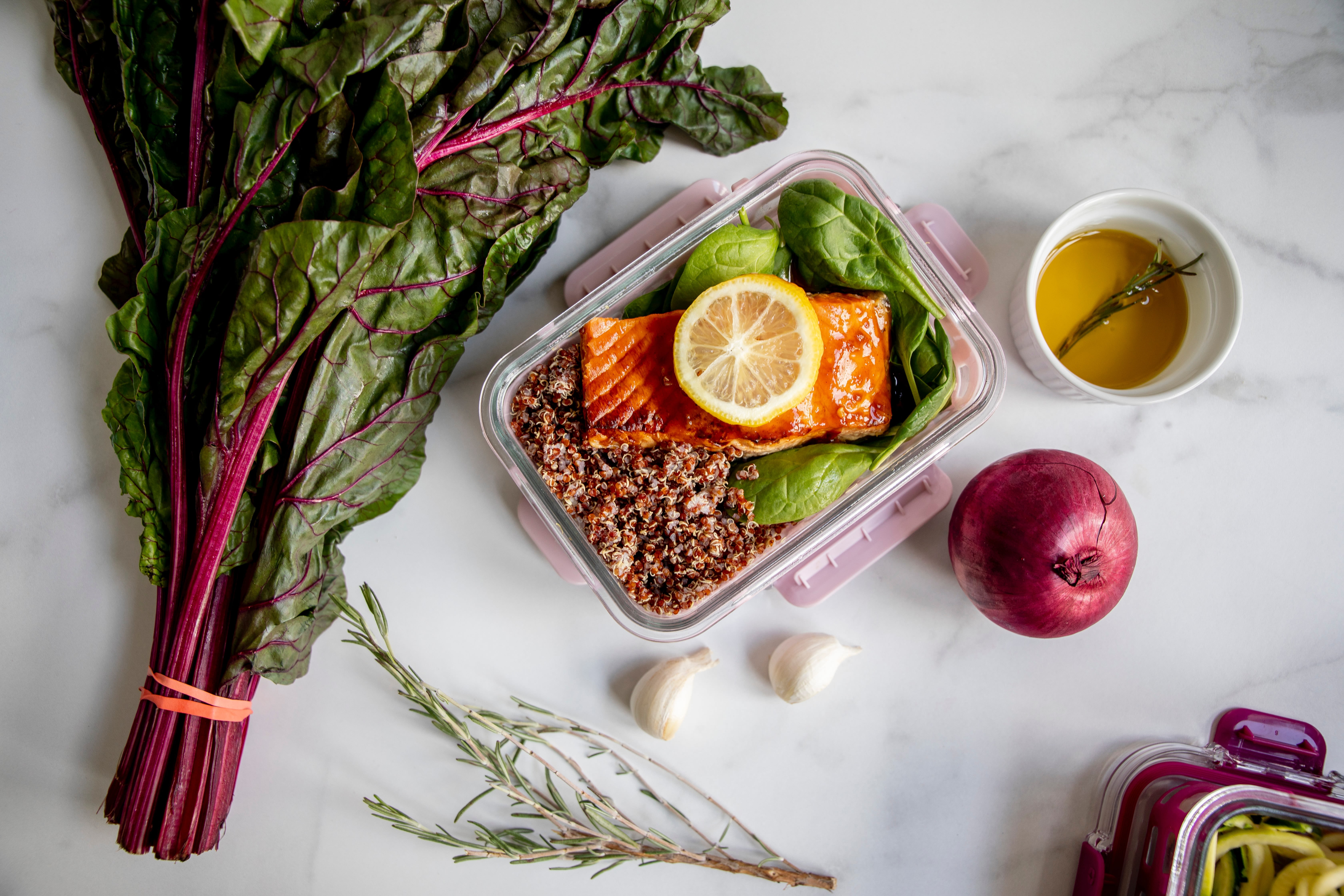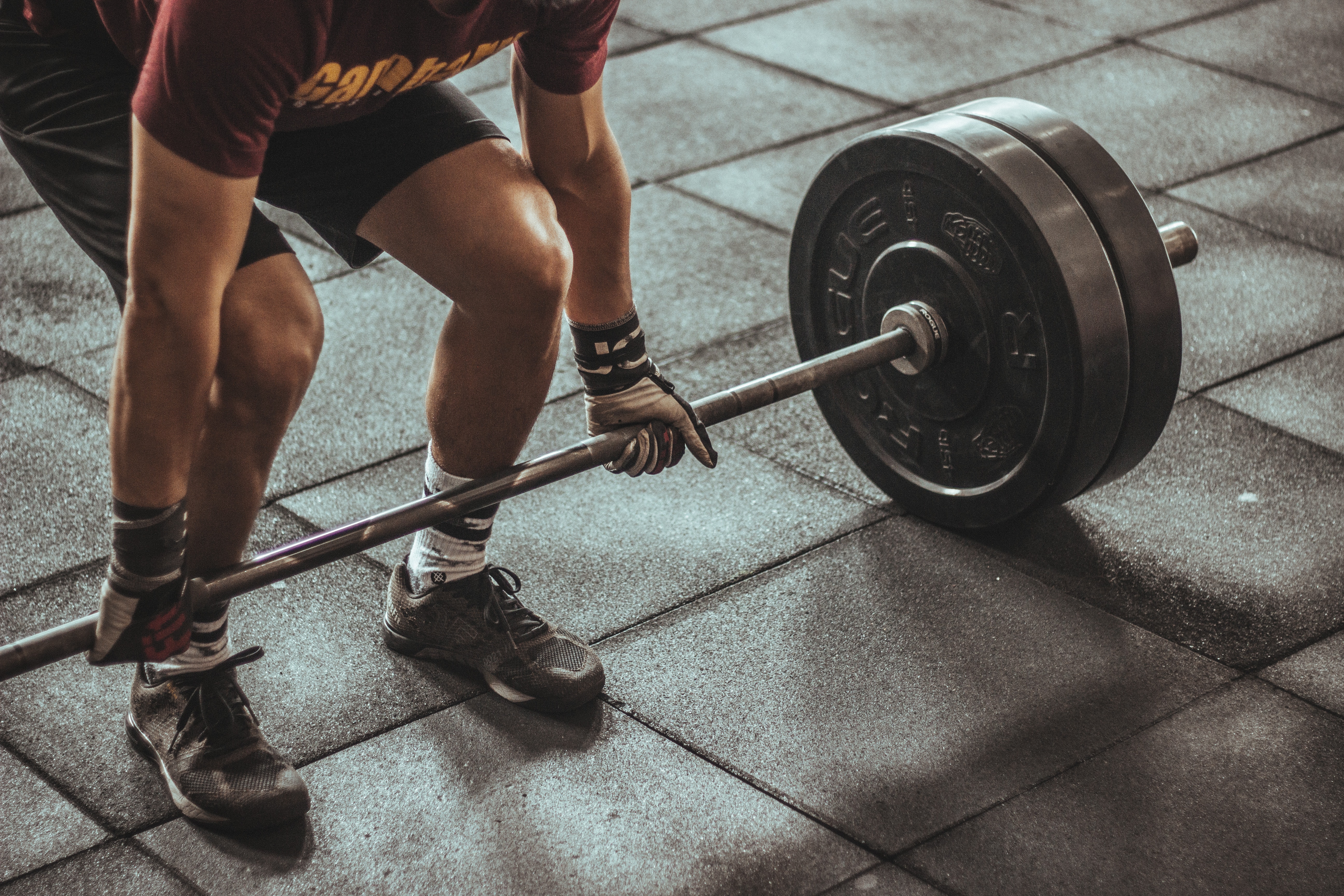If you’re trying to build muscle, you’ve probably been hitting those weightlifting and strength training workouts hard. But … what are you supposed to eat?
Whether you refer to it as “cutting,” “leaning out,” or “body recomposition,” you’re likely talking about building or maintaining lean muscle mass. And while you may already be working on your strength training and hitting the gym, it’s important to remember that muscle is built in the gym and in the kitchen.
Let’s talk about what it really takes to build lean muscle mass once you’re done killing your weightlifting workout for the day.
Also, a note here: the actual term “Lean Mass” really just refers to the things in your body composition that aren’t body fat or water weight … aka your muscles. However, when people say they want to build “lean mass,” it usually means that they want to eat and work out so that their muscles are more defined and show more beneath the layer of fat that covers them. For the purpose of this article, we’ll focus on this specific interpretation.
How muscle is built
First, let’s get a little technical and talk about the science behind your muscles!
Your muscles are made of several muscle fibers that come together to create muscle tissue. When you do a resistance or strength-training workout (for example: by lifting weights, doing Pilates, or any other kind of strength training), your muscle fibers come under tension and stress. If your workout is challenging enough, those muscles are then damaged. With the right diet and recovery after your workout, your immune system can then repair those muscle fibers, which ultimately makes them grow thicker. Over time, all of those thicker fibers add up to stronger, more defined muscles!
Nutrition for building muscle while staying lean
So now that we’ve covered what actually happens when you build muscle, let’s talk about what a nutrition plan for weightlifting actually looks like.

Protein
Even if you know almost nothing else about nutrition for building lean muscle mass, we’re betting you know that you need protein!
Earlier, we mentioned how your muscle grows when you damage the fibers with strength training workouts and then give your body the tools it needs to rebuild and recover. Really, what you need is protein! This “building block” nutrient is crucial for rebuilding those muscle fibers so that they can come back bigger and more defined than before. According to the American College of Sports Medicine, you should aim to eat at least 0.5-0.8 grams of protein per pound of your body weight.
If you’re trying to build muscle, you should pay special attention to the amino acid content of your protein of choice. Amino acids are several smaller molecules that make up one whole protein molecule. Your body makes some amino acids on its own, but it needs to get the rest from your diet. Specifically, you want to make sure that your protein sources have branched-chain amino acids (BCAAs), which spur on the muscle-building process.
As a very general rule, animal-based proteins are “complete” and always have ample amounts of BCAAs, while plant-based proteins usually don’t have enough of every essential amino acid and therefore need to be combined with other protein sources for the best muscle-building benefits.
Finally, it’s also worth keeping the dietary fat of your protein source in mind when you’re trying to stay lean. Choosing leaner protein sources (ie: protein that doesn’t have as much dietary fat) can help you cut down on calories, which can help contribute to both muscle growth and body fat decrease.
A couple of good sources of protein for building muscle while staying lean include:
- Chicken breast
- Ground turkey
- Greek yogurt
- Fish
- Lean cuts of red meat
- Egg whites
- Low-fat cottage cheese
Carbohydrates
If you want to be fueled up and get the most out of your workout, you definitely need to make sure that you’re eating enough carbohydrates!
Your muscles store carbohydrates in a form called glycogen, which it then uses for energy during high-impact workouts. So if you’re not eating enough carbs, you’re not going to be properly fueled for those big lifts and high-impact cardio workouts!
To minimize your intake of simple sugars that don’t contribute much to your overall nutrition, stick with complex carbohydrates instead. Some good examples of carbohydrates you can eat to help you with your lean muscle building include:
- Starchy vegetables like sweet potato
- Whole grain breads
- Brown rice
- Fruits
Fat
Finally, you can’t forget some dietary fat! While your goal should generally be to decrease your dietary fat consumption while trying to get lean, a little bit of it can go a long way in keeping you satisfied while also giving your body some much-needed nutrition. Try minimizing your dietary fat from animal sources, which are often saturated fats that aren’t great for your heart, and stick with plant-based sources instead. These healthy fats tend to be more nutritious, and some are also anti-inflammatory like the omega-3s from certain nuts and seeds. Other good sources of dietary fat include:
- Olive oil
- Coconut oil
- Avocados
Other important tips for nutrition for building lean muscle mass
Time your eating plan accordingly
In addition to what you should eat, it’s also a good idea to plan when you’re going to eat to get the most out of your workouts. A couple of hours before your workout, aim to eat a light snack or meal with healthy carbohydrates to refuel your glycogen stores. Then, as quickly as you can after your workout is done, fill up on protein to spur your muscle growth process on.
Consider your calorie intake
In order to grow muscle, you should be eating a couple more calories than what your body uses for maintenance. In other words, you should be at a slight calorie surplus. You can be at a calorie deficit while you’re doing a strength training program, but it’s likely going to impair your gains (interestingly, however, it can still help you increase your strength if that’s one of your goals).
Try to get a couple of hundred calories more than what your body needs to maintain its current composition to support muscle growth. But to stay lean, stick with nutritious foods like high-quality protein sources whenever you can, so those extra calories can go directly to your muscle growth goals.
Hydrate (a lot).
If you’re not carrying a water bottle around with you whenever possible, you’re doing your gains a disservice!
Drinking enough water can help keep your body primed during a workout and assist with recovery after. So if you aren’t getting enough, you’re probably not going to be going as hard as you’d like to be in order to make your workout effective! You’re also putting yourself at risk of dehydration, especially if you’re working out hard. To avoid this dangerous circumstance, make sure to carry a water bottle with you like the LARQ Bottle Filtered or Bottle PureVis, and hydrate throughout the day and not just chugging a bottle before your workout.

Conclusion
Building lean muscle mass requires a delicate balance of strength-training workouts, plenty of protein, and just enough calories and nutrition to give your body all the tools it needs to grow while moving towards all of your body composition goals.
